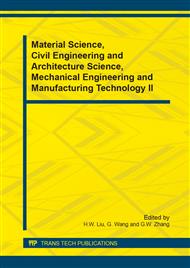p.1699
p.1703
p.1711
p.1717
p.1721
p.1726
p.1730
p.1734
p.1741
Study on the Influencing Factor of C2C E-Commerce Consumption Tendency Based on Online Shopping Platform
Abstract:
From the outset of eachnet.com to the later alibaba.com and the taobao.com, C2C e-commerce online shopping platform has been rapidly rose in China. For e-commerce enterprises, if it wants to obtain benefits from the C2C e-commerce platform, it must know the consumer's purchase tendency based on the e-commerce platform. This paper has used the VAR econometric model to establish the Granger non-causality model, and this model can calculate the non-causality relationship of the store credit and the consumption tendency of consumers in the C2C e-commerce online shopping platform. Through the VAR econometric calculation on reputation, sales and consumption tendency, it shows that with the increase of reputation, and sales, the total sales show a trend of growth. And then the causality test between the two shows that there is a Granger causality relationship between the two, which provides technical support for the optimization design of the online shopping platform.
Info:
Periodical:
Pages:
1721-1725
Citation:
Online since:
September 2014
Authors:
Keywords:
Price:
Сopyright:
© 2014 Trans Tech Publications Ltd. All Rights Reserved
Share:
Citation:


